Programs
Archived Programs
- 10th Anniversary
- 5th Anniversary
- Adamize
- Communitas
- Critic Proof
- Culturally Determined
- Democracy in America
- The DMZ
- Drezburt
- Feminine Chaos
- Fireside Chats
- Foreign Entanglements
- Free Will
- Friedersdorf
- The Glenn Show
- Global Dispatches
- The Good Fight round 1
- The Good Fight round 2
- Interrobang‽
- Lessons Learned
- The Mind Report
- Percontations
- The Posner Show
- Pros & Conn
- Psychopolitica
- Rational Actors
- Science Faction
- Science Saturday
- The Score
- UN Plaza
- Values Added
- Washington Monthly
- Washington Squares
- The Week in Blog
- Woodruff & Strauss
- Worldwise
Foreign Entanglements
Hosted by Robert Farley, Matthew Duss and Natalie Sambhi, Foreign Entanglements brings together people with contrasting views on America’s role in the world.
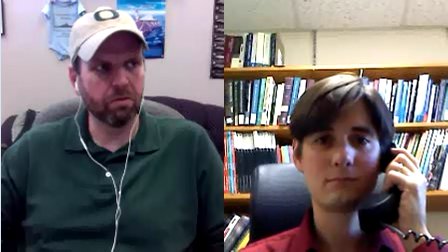
On Foreign Entanglements, Rob and Jason debate libertarian foreign policy. They discuss Conor Friedersdorf’s recent essay making the case against Obama, with Jason detailing the different types of foreign policy libertarianism and Rob wondering whether Friedersdorf conflated morality, legality, and constitutionality. Rob assesses the tradeoffs associated with Obama and the drone program, noting that voting inherently produces a “dirty hands” problem. Rob wonders if a libertarian foreign policy will ever catch on, then they discuss the political and economic sources of secessionist sympathies in various European countries. Rob and Jason conclude with a brief discussion of American attitudes towards Saakashvili’s Georgia.

On Foreign Entanglements, Matt and Jamie discuss the Foreign Policy Initiative’s new poll of US opinion on foreign policy. They debate whether isolationism is still an important strain in American politics. Why was the Obama administration so slow to acknowledge the Libyan consulate murders as a terrorist attack? Were the embassy demonstrations a sign of US weakness in the Middle East? Both Matt and Jamie think supporters of Bush’s “Freedom Agenda” should’ve been prepared for Morsi’s UN speech. Finally, Matt criticizes Netanyahu’s infamous bomb chart speech, while Jamie defends an aggressive stance against Iran.

On Foreign Entanglements, Rob and Toshi discuss the East China Sea island dispute between China and Japan. Toshi gives a brief history of the dispute, then explains why tensions have escalated in recent months. Rob wonders how much the growing strength of the Chinese navy affects the calculations of policymakers in Tokyo and in Southeast Asia. Rob and Toshi discuss the role that the United States can play in de-escalating the crisis. They also consider China’s relationship with Taiwan in this context. Plus: how does climate change influence disputes like this one?

On Foreign Entanglements, Matt talks to Carey about Ambassador Chris Stevens and the three other Americans killed in Benghazi. Carey disputes the idea that diplomats get “captured” by their host countries. Matt asks Carey about the impact of the 2011 WikiLeaks cables, and Carey goes on to explain the difficulties of diplomacy in the age of Twitter. Matt asks Carey about his experience establishing the embassy in post-Soviet Georgia, and Carey closes by offering lessons for Libya and Egypt today.
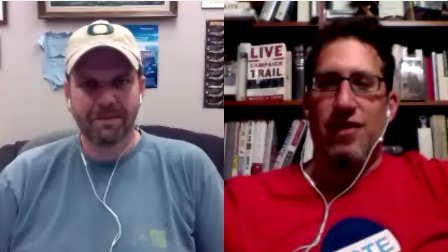
On Foreign Entanglements, Rob speaks with Michael about the political conventions. Michael, who attended both conventions, says it was like going from a country club to New York City. Rob and Michael talk about newfound Democratic confidence in foreign policy, and they wonder how hawkish the party can become. Rob asks Michael who he thinks might take the key foreign policy positions in the Obama and Romney administrations, and they evaluate John Bolton, John McCain, and George W. Bush as picks for Secretary of State. Looking past the 2012 election, Michael asks Rob about the prospects of a 2016 Rand Paul run for the GOP nomination.

On Foreign Entanglements, Matt and Meir discuss the new IAEA report on Iran’s nuclear program. Meir is concerned that war with Iran has become an identity issue for some Americans. Turning to the recent Non-Aligned Movement conference in Tehran, they discuss the surprising roles of Ban Ki-moon and Egyptian President Mohamed Morsi. Matt argues that Obama’s strategy of diplomatic engagement at the UN has been vindicated. Is Israel or the US ever likely to bomb Iran? Matt worries that the tension between US and Israeli red lines increases the risk of war.
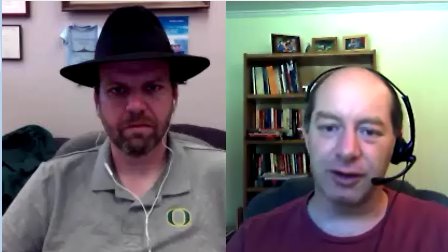
On Foreign Entanglements, Rob speaks with Dmitry about Russian foreign and security policy. Rob asks Dmitry why the Russians have continued to support the Assad regime in Syria. They then discuss Russia’s approach to Responsibility to Protect. Rob wonders how Russia conceives of the relationship between US foreign policy and Islamic extremism. Finally, Dmitry suggests that some in the Obama administration quietly welcome the obstructionist role that Russia has played at the UN on Syria.
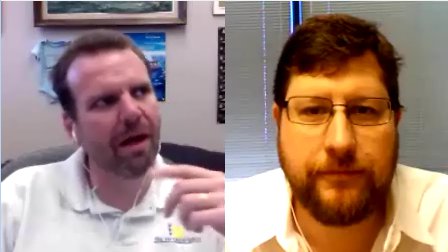
On Foreign Entanglements, Matt and Rob explore the foreign policy aspects of the election. They begin with what Paul Ryan means for foreign policy in the campaign, and for the battle between neocons and realists within the GOP. They next discuss what Israeli threats to attack Iran are intended to do, and how such threats might affect the course of the election. Rob and Matt then talk about Syria, including the effect of unrest on Iran-Israel relations and on US Presidential rhetoric. How have neoconservatives dealt with the Arab Spring? Finally, they delve into a new right-wing effort to undercut the Obama administration on killing Osama bin Laden.
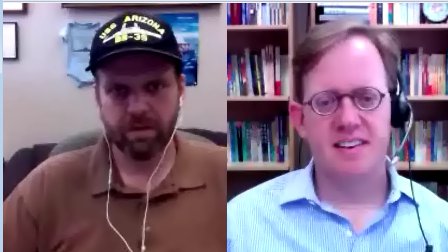
On Foreign Entanglements, Rob speaks with Taylor about the current state of Chinese politics. Taylor explains the scandalous Bo Xilai affair, and Rob wonders whether there’s a crisis of civil-military relations in China. Taylor lays out the situation in the South China Sea and discusses China’s “salami slicing” strategy. Rob and Taylor analyze the potentially destabilizing effects of AirSea Battle. Is it crazy for the US to prepare for the possibility of war with China? They conclude with a conversation about how the Chinese view the US election.
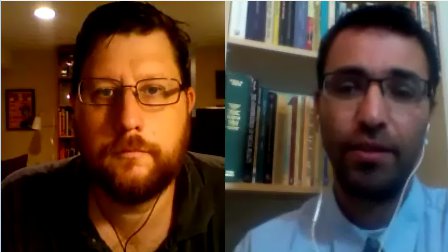
On Foreign Entanglements, Matt talks with Aziz about how Romney’s “culture” comments were received among Palestinians (hint: not well). Matt outlines the problem with introducing “providence” into political discussions. Would President Romney really recognize Jerusalem as Israel’s capital, and would that mean the end of the two-state solution? Matt thinks that Romney inadvertently kicked off a rare good conversation about Israel-Palestine in DC. Aziz argues that Mahmoud Abbas is right to not negotiate with Netanyahu. Finally, if the two-state solution is dead, what happens next?
Archives
- March 2026(1)
- January 2026(8)
- October 2025(8)
- August 2025(10)
- July 2025(13)
- June 2025(11)
- May 2025(12)
- April 2025(14)
- March 2025(12)
- February 2025(12)
- January 2025(15)
- December 2024(10)
- November 2024(11)
- October 2024(15)
- September 2024(12)
- August 2024(13)
- July 2024(12)
- June 2024(10)
- May 2024(14)
- April 2024(12)
- March 2024(14)
- February 2024(13)
- January 2024(15)
- December 2023(15)
- November 2023(17)
- October 2023(16)
- September 2023(18)
- August 2023(15)
- July 2023(14)
- June 2023(17)
- May 2023(15)
- April 2023(16)
- March 2023(19)
- February 2023(15)
- January 2023(16)
- December 2022(16)
- November 2022(16)
- October 2022(17)
- September 2022(19)
- August 2022(15)
- July 2022(17)
- June 2022(15)
- May 2022(17)
- April 2022(18)
- March 2022(15)
- February 2022(15)
- January 2022(16)
- December 2021(21)
- November 2021(19)
- October 2021(22)
- September 2021(19)
- August 2021(22)
- July 2021(24)
- June 2021(18)
- May 2021(18)
- April 2021(19)
- March 2021(19)
- February 2021(19)
- January 2021(19)
- December 2020(21)
- November 2020(19)
- October 2020(19)
- September 2020(21)
- August 2020(21)
- July 2020(20)
- June 2020(22)
- May 2020(19)
- April 2020(22)
- March 2020(18)
- February 2020(13)
- January 2020(18)
- December 2019(12)
- November 2019(14)
- October 2019(16)
- September 2019(15)
- August 2019(19)
- July 2019(14)
- June 2019(17)
- May 2019(18)
- April 2019(15)
- March 2019(18)
- February 2019(16)
- January 2019(19)
- December 2018(18)
- November 2018(15)
- October 2018(19)
- September 2018(16)
- August 2018(14)
- July 2018(15)
- June 2018(12)
- May 2018(13)
- April 2018(18)
- March 2018(16)
- February 2018(13)
- January 2018(10)
- December 2017(11)
- November 2017(14)
- October 2017(13)
- September 2017(10)
- August 2017(16)
- July 2017(17)
- June 2017(18)
- May 2017(18)
- April 2017(17)
- March 2017(19)
- February 2017(12)
- January 2017(14)
- November 2016(13)
- October 2016(11)
- September 2016(12)
- August 2016(9)
- July 2016(16)
- June 2016(17)
- May 2016(12)
- April 2016(16)
- March 2016(19)
- February 2016(12)
- January 2016(17)
- December 2015(17)
- November 2015(16)
- October 2015(17)
- September 2015(21)
- August 2015(22)
- July 2015(25)
- June 2015(26)
- May 2015(23)
- April 2015(25)
- March 2015(28)
- February 2015(28)
- January 2015(22)
- December 2014(28)
- November 2014(26)
- October 2014(30)
- September 2014(26)
- August 2014(26)
- July 2014(28)
- June 2014(27)
- May 2014(32)
- April 2014(26)
- March 2014(30)
- February 2014(28)
- January 2014(30)
- December 2013(28)
- November 2013(26)
- October 2013(26)
- September 2013(26)
- August 2013(25)
- July 2013(30)
- June 2013(37)
- May 2013(28)
- April 2013(30)
- March 2013(30)
- February 2013(31)
- January 2013(33)
- December 2012(34)
- November 2012(35)
- October 2012(42)
- September 2012(35)
- August 2012(38)
- July 2012(30)
- June 2012(32)
- May 2012(33)
- April 2012(33)
- March 2012(43)
- February 2012(34)
- January 2012(28)
- December 2011(30)
- November 2011(33)
- October 2011(36)
- September 2011(37)
- August 2011(34)
- July 2011(36)
- June 2011(36)
- May 2011(33)
- April 2011(36)
- March 2011(36)
- February 2011(34)
- January 2011(35)
- December 2010(38)
- November 2010(43)
- October 2010(38)
- September 2010(36)
- August 2010(38)
- July 2010(38)
- June 2010(38)
- May 2010(38)
- April 2010(35)
- March 2010(41)
- February 2010(35)
- January 2010(40)
- December 2009(35)
- November 2009(35)
- October 2009(41)
- September 2009(39)
- August 2009(41)
- July 2009(43)
- June 2009(41)
- May 2009(39)
- April 2009(40)
- March 2009(38)
- February 2009(35)
- January 2009(42)
- December 2008(36)
- November 2008(38)
- October 2008(45)
- September 2008(48)
- August 2008(45)
- July 2008(49)
- June 2008(48)
- May 2008(49)
- April 2008(45)
- March 2008(39)
- February 2008(38)
- January 2008(40)
- December 2007(33)
- November 2007(27)
- October 2007(31)
- September 2007(26)
- August 2007(32)
- July 2007(27)
- June 2007(30)
- May 2007(30)
- April 2007(25)
- March 2007(23)
- February 2007(19)
- January 2007(18)
- December 2006(11)
- November 2006(14)
- October 2006(11)
- September 2006(10)
- August 2006(9)
- July 2006(8)
- June 2006(11)
- May 2006(12)
- April 2006(10)
- March 2006(9)
- January 2006(9)
- December 2005(10)
- November 2005(14)


